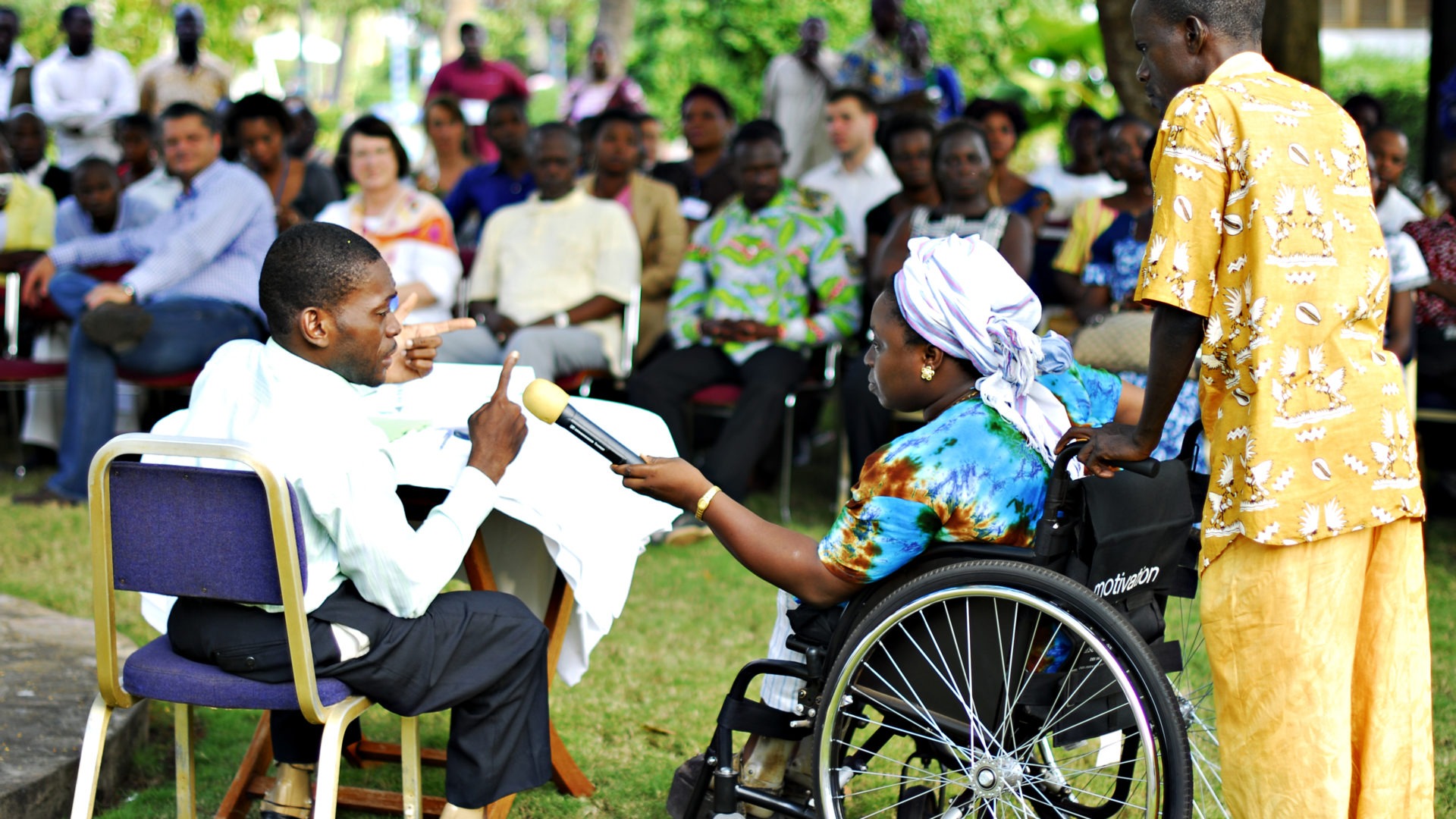Evaluation Report on Successful Training on „Meaningful Participation of Persons with Disabilities in Humanitarian Action“!
Category
Capacity Building
© Daniel Hayduk / CBM
Once again, we have analysed and summarised the feedback from participants, this time on our “Meaningful Participation of Persons with Disabilities in Humanitarian Action” training, in a detailed evaluation report. The activities carried out and key findings are listed below.
The training (2,5 hours for two days) was designed by our project partner CBM and carried out together with two self-advocates with disabilities. The participants were mainly German humanitarian actors who work as project managers or technical advisors and already have some experience on the inclusion of people with disabilities.
Most participants are active in South and East Africa, followed by the Asian and Pacific region, Latin America and the Caribbean, and West and Central Africa. Regarding the sector of intervention, their organisations are mainly involved in Water, Sanitation and Hygiene, Health, Food Security and Nutrition, and Disaster Risk Reduction.
The following points were on the training agenda:
- Understanding the different types of barriers and facilitators for persons with disabilities to engage with humanitarian organisations
- Overview of the legal frameworks and relevant guidelines, such as the IASC Guidelines on Inclusion of Persons with Disabilities in Humanitarian Action
- Identification and cooperation with organisations of persons with disabilities (OPDs) as (potential) partners and equivalent alternatives, should no local OPD exist
- Expectations of OPDs from humanitarian organisations and vice versa
- Meaningful participation of persons with disabilities in all phases of the humanitarian project cycle
In their predominantly positive feedback, the participants highlighted in particular the involvement of OPDs as guest speakers and co-trainers, as well as the offer of individual advisory sessions as beneficial to achieve the learning objectives. Through the latter, participants were given the opportunity to receive advice from technical specialists on their own projects and topics, and fortunately, this opportunity was used to the fullest extend.
“The training was very insightful. Thank you for the organisation and all the valuable inputs.”
Participant
The evaluation also showed that all those present developed a deeper understanding of inclusive humanitarian action and ways to consult and collaborate with OPDs.
We would like to take this opportunity to thank all participants for their interest and feedback!
The summary of the evaluation report is available here.
More information on trainings can be found here.
The project is funded by the German Federal Foreign Office (AA) and carried out together with the Christoffel Blindenmission Christian Blind Mission e.V. (CBM) and the Institute for International Law of Peace and Humanitarian Law (IFHV) at the Ruhr-University Bochum.